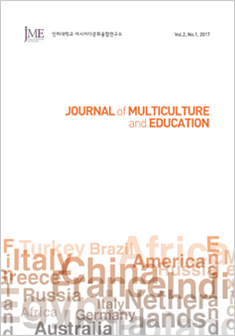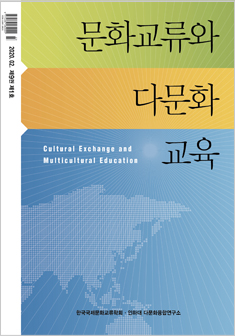
논문검색
HOME 학회지 논문검색
문화교류와 다문화교육, (2024)
pp.203~227
중국 내 교육 젠트리피케이션 연구의 경향 및 특징의 고찰
중국에서 교육 젠트리피케이션의 정의는 중국의 중산층 부모가 도심 학구 지역에서 고가의 학구 주택을 구매하는 현상, 교육 정책 시행에 따라 도시 외곽에서 젠트리피케 이션을 일으키는 학교 선택 현상, 교육 정책에 따라 주택가격이 상승하면서 도시의 교 육 젠트리피케이션이 사회 공간적 차별화를 심화시키는 현상을 의미한다. 중국에서 발 생한 교육 젠트리피케이션을 일으킨 배경에는 정부의 교육재정 부족, 공간과 관련된 교육시설 설립 과정에서 지방정부 참가, 고가의 학구 주택, 교육영역에서의 지방정부 의 주도적 역할, 거주지 인근 학교 입학 정책, 학구화 교육 정책, 집단화 교육 정책, 신 소질 교육 정책 등이다. 초기 교육 젠트리피케이션 연구는 학부모의 학교 선택과 학구 주택의 가격상승을 중심으로 이루어졌다. 이후 학구화와 집단화 교육으로 인한 젠트리 피케이션, 교육 정책이 추동하는 교육 젠트리피케이션으로 연구가 이어져 온다. 교육 젠트리피케이션은 간접적이거나 수동적인 형태가 아니고 학부모, 학교, 지방정부, 교 육 정책이 적극적으로 추동하는 현상이다. 비판적 교육 지리학에서 제안한 4가지 공간 지향성을 이용하여 학구 주택을 중심으로 상향, 외향, 내향, 내부를 바라보면서 중국의 교육 젠트리피케이션의 특징을 살펴보았다. 교육 공간을 중심으로 상향과 외향을 바라 볼 때 연구들은 국가와 자본의 결합에 대하여 구체적인 작동 기제에 관한 설명을 회피 하는 경향이 있다. 교육 정책 주도 젠트리피케이션이 발생하였다는 결과를 보여 주지 만 이것이 신 자유주의적 교육 정책의 결과물로 학구화 교육을 설명하지 못하고 있다. 그나마 창춘을 대상으로 한 연구는 국가-자본의 결합으로 교육 젠트리피케이션을 연구 한 사례이다. 교육 공간으로의 하향 관점에서 바라보면 기존 연구들은 인적, 사회적 자 본 중심으로 이루어졌다. 난징지역 연구에서 등장하는 사회자본 문화자본 중심적 연구 는 자본주의가 작동한지 50년된 중국 자본주의 사회에서 적용 가능성의 적실성을 고민 해야 한다. 신자유주의적 인간상을 중심으로 교육영역에 대한 행동을 취하는 원인과 방법에 관한 연구가 필요해 보인다. 교육 공간 내부를 바라보는 관점에서 교육 젠트리 피케이션 연구는 교육 정책에 대하여 긍정적인 입장을 견지한다.
Review about Educational Gentrification Research Trends and Characteristics in China
Educational gentrification in China consists of three definition First is the phenomenon of middle-class parents in China who purchase expensive school district housing in urban school district areas. Second is the school choice phenomenon that causes gentrification in the outskirts of the city due to the implementation of education policy. Third is the phenomenon of housing prices depending on education policy. As educational gentrification happens, it means that urban educational gentrification is deepening social and spatial differentiation. The background to the educational gentrification that occurred in China is a lack of government funding for education, participation of local governments in the process of establishing space-related educational facilities, expensive school district housing, the leading role of local governments in the educational field, school admission policies near residence, These include academic education policy, collectivization education policy, and new talent education policy. Early studies of educational gentrification focused on parents’ school choice and the rising cost of district housing. Since then, research has continued on gentrification caused by school districtization and collectivized education, and educational gentrification driven by educational policy. Educational gentrification is not an indirect or passive form, but a phenomenon actively promoted by parents, schools, local governments, and education policies. Using the four spatial perspectives proposed in critical educational geography, the characteristics of educational gentrification in China is likely to grasped with the methods of looking upward, outward, inward, and inward. When looking upward and outward, focusing on the educational space, studies need to explain the specific operating mechanism of the nexus of the state and capital. The results show that education policy-led gentrification has occurred, but this does not explain academicized education as a result of neo-liberal education policy. At least, the study targeting Changchun is a case study of educational gentrification through the combination of state and capital. From a downward perspective into the educational space, studies have focused on human and social capital. We need to consider the applicability of the social capital and cultural capital that emerged in the study of the Nanjing region in China’s capitalist society, where capitalism has been in operation for only 40 years. It seems necessary to research the causes and methods of taking action in the field of education, focusing on the neoliberalized humanity. From the perspective of looking inside the educational space, educational gentrification research maintains a positive stance toward educational policy.
 다문화와 교육(Journal of Multiculture and Education)
다문화와 교육(Journal of Multiculture and Education) 문화교류와 다문화교육
문화교류와 다문화교육